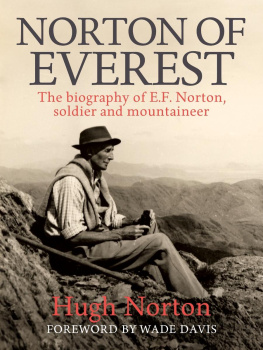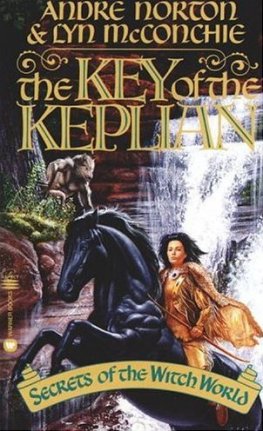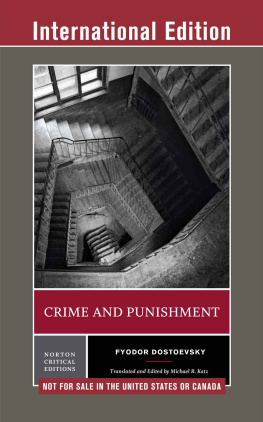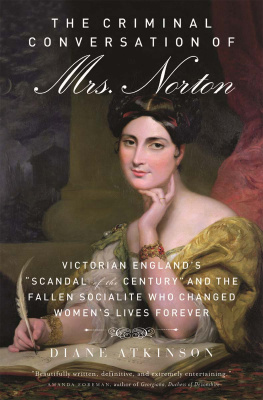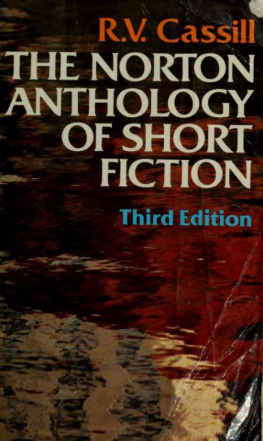The epic story of the first British attempts on Everest in 19211924 has long been dominated by the charismatic figure of George Mallory, whose tragic and mysterious death on the final assault in 1924 secured his place in the firmament of Himalayan mountaineering. As the only climber to participate in all three early expeditions Mallory certainly deserves the recognition, but he was most assuredly not alone on the mountain. Altogether some twenty-five other climbers shared the great adventure. They were mostly but not exclusively British. The 1921 reconnaissance included Oliver Wheeler, a Canadian who actually found the route to the North Col, a discovery long attributed to Mallory. The 1922 expedition featured George Finch, an Australian by birth, who proved the efficacy of supplemental oxygen as he reached higher than anyone before him; had he not chosen to save the life of young Geoffrey Bruce he might well have reached the summit. The British contingent included the indomitable Howard Somervell who on his last attempt in 1924 coughed up the entire frost-scarred and bloody lining of his throat and simply kept walking. All of these men, along with their other climbing companions in 19211924, were extraordinary characters very much the equal of Mallory.
In recent years a number of books have been published, many by family members and descendants, which have finally given these climbers their due. Among the first of these books were two fine biographies of Sandy Wollaston and Henry Morshead, written by their sons, Nicholas Wollaston and Ian Morshead. Julie Summers wrote of her great uncle, Sandy Irvine, who perished with Mallory in 1924. Sandra Noel, daughter of the indefatigable John Noel, expedition filmmaker in 1922 and 1924, brought out a lovely collection of her fathers photographs. Other books published recently or currently in the works revisit the contributions of George Finch, Oliver Wheeler, Arthur Wakefield and Richard Hingston, expedition physician in 1924.
But surely no account has been more eagerly anticipated than Hugh Nortons biography of his father, the incomparable Col. Edward Norton, who played a pivotal role in 1922 and served brilliantly as expedition leader in 1924. Norton of Everest is the perfect complement to Everest Revealed: The Private Diaries and Sketches of Edward Norton, 192224, an illustrated book of photographs and watercolours edited by Christopher Norton, grandson of the Colonel, nephew of Hugh, and first published in 2014. Indeed the entire Norton family including Hughs brothers Dick and Bill have conspired in a marvellous way to give what can only be described as a literary gift to the mountaineering world.
Edward Felix Teddy Norton, then thirty-eight, was the great discovery of the 1922 expedition, a man of extraordinary qualities of leadership, integrity, and grit. Commissioned as a graduate of the Royal Military Academy Woolwich in 1902, he had been a soldier since boyhood. Posted to Meerut at 22, he would over the years serve throughout India. While at Meerut, he became for a brief period aide-de-camp to the viceroy before sailing with his regiment to France in the late summer of 1914. That he survived the war was a statistical miracle, for he fought in virtually every campaign, from the very first British attacks at Aisne and the Marne, through Ypres, Loos and the Somme, Arras and the German spring offensive of 1918. Mentioned in dispatches three times, he was awarded the Military Cross, appointed DSO, and honoured with every medal for gallantry and combat save the Victoria Cross.
Norton emerged from the war with a certain quality of being, a serenity, confidence and uncanny presence that caused men almost reflexively to follow his lead. Norton is one of the best, George Mallory exclaimed to his beloved wife Ruth in his first reference to the new man, extraordinarily keen and active and full of interest and gentle and charming withal. He is to be my stable companion I understand and I dont doubt that I shall like him in that capacity as well as anyone. Many months later when leadership on Everest in 1924 devolved to Norton, as fate inevitably would have it, one of the climbers marvelled how Norton as commander would make up his mind about a decision, then call in the entire expedition to confer. Invariably they would after discussion come to his view.
In retrospect it was remarkable that Norton was even available to join the Everest effort. He had just passed through staff college and was destined for great things in the army. The Everest Committee had gone to the very top, Sir Henry Wilson, Chief of the Imperial General Staff, to secure for Norton eight months leave, which Wilson granted in a letter of January 23, 1922. One senses the hand of Sir Francis Younghusband, then president of the Royal Geographical Society and a dominant figure in the entire Everest adventure, who perfectly distilled Nortons character and charisma in a brief biographical sketch:
Major E. F. Norton, DSO, was well known in the Alpine Club and well versed in the lore of mountaineering. He had the additional advantage of having served in India and been on shooting expeditions in the Himalaya. He could speak Hindustani and knew how to handle Indian peoples. Compact and collected, erect and direct, and with a habit of command, he inspired confidence at once. And there was a kindliness and suavity about him, which increased the trust placed in him.
He was indeed a combination of many qualities. As an officer of the Royal Horse Artillery he was noted for the smartness of his battery; he had served with distinction in the war; for seven years he had run the Kadir Cup Meeting the great pig-sticking event in India; he was a keen observer of birds; and he was an amateur painter of more than average ability. In everything he was methodical In his punctuality he took great pride: he would be neither too early nor too late. It was not much more than a minute before the train left Victoria that he arrived at the station on his way to India and he was leisurely saying goodbye to his friends and the train was well on the move as he quietly stepped into it continuing his conversation. With him there would be no flurry in emergency.
In 1922 Norton proved exceptional in every way. Calm in crisis, stoic in the face of adversity, he was a confident leader whose measured orders were embraced readily by those under his command. Unlike so many of the senior officers the other climbers had all known during the war, Nortons mind did not run on rails. He was open to discussion, tolerant of debate, and had a way of making each man feel a part of what were ultimately his decisions alone. As a personality and a mountaineer he quite literally stood out from the pack. Mallory, Somervell, Geoffrey Bruce, and indeed most of the alpine climbers, were of remarkably similar stature. Each was an inch shy of six feet and weighed roughly 160 pounds fully clothed. Norton by contrast was six foot four inches, exceedingly tall and thin, approximating, as he quipped, Euclids definition of a straight line. Heralded by all, and most especially by Mallory, Norton to the surprise of no one was selected as early as October 1922 to serve as climbing leader and second-in-command under General Charles Bruce for the 1924 expedition. When Bruce collapsed and had to be evacuated on the approach march from Darjeeling to Everest, leadership came naturally to the younger soldier.
Norton looms large over virtually every moment of the fateful expedition that would take the lives of George Mallory and Sandy Irvine, causing an entire war-torn nation to weep. He is perhaps best remembered by mountaineers for setting a height record as he struggled through the deep snow of the couloir that today bears his name on the north face of Everest. Others herald the calm and expedient manner in which he decisively rallied the survivors and abandoned the mountain in the wake of the tragedy. We were a sad little party, Norton wrote on Monday 16 June 1924 as the expedition departed Rongbuk, and from the first we accepted the loss of our comrades in that rational spirit which all our generation had learnt in the Great War, and there was never any tendency to a morbid harping on the irrevocable. But the tragedy was very near. As so constantly in the war, so here in our mimic campaign death had taken his toll from the best.

